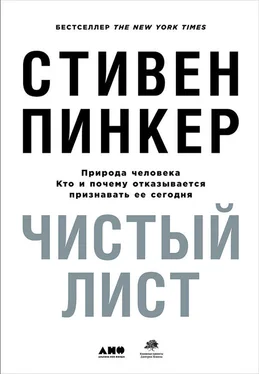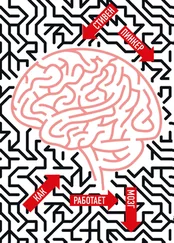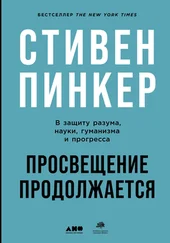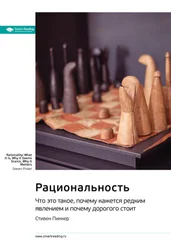Freeman, D. 1983. Margaret Mead and Samoa: The making and unmaking of an anthropological myth. Cambridge, Mass.: Harvard University Press.
Freeman, D. 1999. The fateful hoaxing of Margaret Mead: A historical analysis of her Samoan research. Boulder, Colo.: Westview Press.
Frith, C. 1992. The cognitive neuropsychology of schizophrenia. New York: Psychology Press.
Fry, D. 2000. Conflict management in cross-cultural perspective. In F. Aureli & F. B. M. de Waal (Eds.), Natural conflict resolution. Berkeley: University of California Press.
Furchtgott-Roth, D., & Stolba, C. 1999. Women's figures: An illustrated guide to the economic progress of women in America. Washington, DC: American Enterprise Institute Press.
Galileo, G. 1632/1967. Dialogue concerning the two chief world systems. Berkeley: University of California Press.
Gallistel, C. R. 1990. The organization of learning. Cambridge, Mass.: MIT Press. Gallistel, C. R. (Ed.) 1992. Animal cognition. Cambridge, Mass.: MIT Press. Gallistel, C. R. 2000. The replacement of general-purpose theories with adaptive specializations. In M. S. Gazzaniga (Ed.), The new cognitive neurosciences (2nd ed.,). Cambridge, Mass.: MIT Press.
Gangestad, S., & Thornhill, R. 1998. Menstrual cycle variation in women's preferences for the scent of symmetrical men. Proceedings of the Royal Society of London B, 265, 927–933.
Gardner, H. 1983. Frames of mind: The theory of multiple intelligences. New York: Basic Books.
Gardner, H. 1985. The mind's new science: A history of the cognitive revolution. New York: Basic Books.
Gardner, H. 1999. Intelligence reframed: Multiple intelligences for the 21st century. New York: Basic Books.
Gaulin, S., & McBurney, D. 2000. Evolutionary psychology. Englewood Cliffs, N. J.: Prentice Hall.
Gaulin, S. J. C., & McBurney, D. H. 2001. Psychology: An evolutionary approach. Upper Saddle River, N. J.: Prentice Hall.
Gazzaniga, M. S. 1992. Nature's mind: The biological roots of thinking, emotion, sexuality, language, and intelligence. New York: Basic Books.
Gazzaniga, M. S. 1998. The mind's past. Berkeley: University of California Press. Gazzaniga, M. S. 2000a. Cognitive neuroscience: A reader. Malden, Mass.: Blackwell.
Gazzaniga, M. S. (Ed.) 2000b. The new cognitive neurosciences (2nd ed.). Cambridge, Mass.: MIT Press.
Gazzaniga, M. S., Ivry, R. B., & Mangun, G. R. 1998. Cognitive neuroscience: The biology of the mind. New York: Norton.
Geary, D. C. 1994. Children's mathematical development. Washington, D. C.: American Psychological Association.
Geary, D. C. 1995. Reflections on evolution and culture in children's cognition. American Psychologist, 50, 24–37.
Geary, D. C. 1998. Male, female: The evolution of human sex differences. Washington, DC: American Psychological Association.
Geary, D. C. In press. Principles of evolutionary educational psychology. Learning and Individual Differences.
Geary, D. C., & Huffman, K. J. 2002. Brain and cognitive evolution: Forms of modularity and functions of mind. Psychological Bulletin.
Geertz, C. 1973. The interpretation of cultures: Selected essays. New York: Basic Books.
Gelman, S. A., Coley, J. D., & Gottfried, G. M. 1994. Essentialist beliefs in children: The acquisition of concepts and theories. In L. A. Hirschfeld & S. A. Gelman (Eds.), Mapping the mind: Domain specificity in cognition and culture. New York: Cambridge University Press.
Getty, J. A. 2000. The future did not work (Reviews of Furet's "The passing of an illusion" and Courtois et al.'s "The black book of communism"). Atlantic Monthly, 113–116.
Ghiglieri, M. P. 1999. The dark side of man: tracing the origins of male violence. Reading, Mass.: Perseus Books.
Gibbons, A. 1997. Archeologists rediscover cannibals. Science, 277, 635–637. Gibbons, A. 2000. Europeans trace ancestry to paleolithic people. Science, 290, 1080–1081.
Gigerenzer, G. 1991. How to make cognitive illusions disappear: Beyond heuristics and biases. European Review of Social Psychology, 2, 83–115.
Gigerenzer, G. 1997. Ecological intelligence: An adaptation for frequencies. In D. Cummins & C. Allen (Eds.), The evolution of mind. New York: Oxford University Press.
Gigerenzer, G., & Hug, K. 1992. Domain specific reasoning: Social contracts, cheating and perspective change. Cognition, 43, 127–171.
Gigerenzer, G., & Selten, R. (Eds.) 2001. Bounded rationality: The adaptive toolbox. Cambridge, Mass.: MIT Press.
Gilbert, D. T., & Hixon, J. G. 1991. The trouble of thinking: Activation and application of stereotypic beliefs. Journal of Personality and Social Psychology, 60, 509–517.
Gilligan, C. 1982. In a different voice: Psychological theory and women's development. Cambridge, Mass.: Harvard University Press.
Gintis, H. 2000. Strong reciprocity and human sociality. Journal of Theoretical Biology, 206, 169–179.
Glendon, M. A. 2001. A world made new: Eleanor Roosevelt and the Universal Declaration of Human Rights. New York: Random House.
Glover, J. 1977. Causing death and saving lives. London: Penguin.
Glover, J. 1999. Humanity: A moral history of the twentieth century. London: Jonathan Cape.
Godfray, H. C. 1995. Evolutionary theory of parent-offspring conflict. Nature, 376, 133–138.
Goguen, J. A. E. 1999. Special Issue on Art and the Brain. Journal of Consciousness Studies, 6.
Goldberg, L. R. 1968. Simple models or simple processes? Some research on clinical judgments. American Psychologist, 23, 483–496.
Goldenberg, J., Mazursky, D., & Solomon, S. 1999. Creative sparks. Science, 285, 1495–1496.
Goldin, C. 1990. Understanding the gender gap: An economic history of American workers. New York: Oxford University Press.
Goleman, D. 1985. Vital lies, simple truths: The psychology of self-deception. New York: Simon & Schuster.
Gombrich, E. 1982/1995. The sense of order: A study in the psychology of decorative art 2nd ed. London: Phaidon Press.
Gopnik, A., Meltzoff, A. N., & Kuhl, P. K. 1999. The scientist in the crib: Minds, brains, and how children learn 1st ed. New York: William Morrow.
Gopnik, A., Meltzoff, A. N., & Kuhl, P. K. 2000. The scientist in the crib: What early learning tells us about the mind. New York: HarperCollins.
Gordon, M. T., & Riger, S. 1991. The female fear: The social cost of rape. Urbana: University of Illinois Press.
Gottfredson, L. S. 1988. Reconsidering fairness: A matter of social and ethical priorities. Journal of Vocational Behavior, 29, 379–410.
Gottfredson, L. S. 1997. Mainstream science on intelligence: An editorial with 52 signatories, history, and bibliography. Intelligence, 24, 13–23.
Gottfredson, M. R., & Hirschi, T. 1990. A general theory of crime. Stanford: Stanford University Press.
Gottschall, J., & Gottschall, R. 2001, June 13–17. The reproductive success of rapists: An exploration of the per-incident rape-pregnancy rate. Paper presented at the Annual Meeting of the Human Behavior and Evolution Society, London.
Gottschall, J., & Jobling, I. (Eds.) in preparation. Evolutionary psychology and literary studies: Toward Integration.
Gould, S. J. 1976a. Biological potential vs. biological determinism. In S. J. Gould (Ed.), Ever since Darwin: Reflections in natural history. New York: Norton.
Gould, S. J. 1976b. Criminal man revived. Natural History, 85, 16–18. Gould, S. J. 1980. The panda's thumb. New York: Norton.
Gould, S. J. 1981. The mismeasure of man. New York: Norton. Gould, S. J. 1992. Life in a punctuation. Natural History, 101, 10–21.
Gould, S. J. 1995. Ordering nature by budding and full-breasted sexuality. In Dinosaur in a haystack. New York: Harmony Books.
Gould, S. J. 1998a. The diet of worms and the defenestration of Prague. In S. J.
Gould (Ed.), Leonardo's mountain of clams and the Diet of Worms: Essays in natural history. New York: Harmony Books.
Читать дальше
Конец ознакомительного отрывка
Купить книгу











